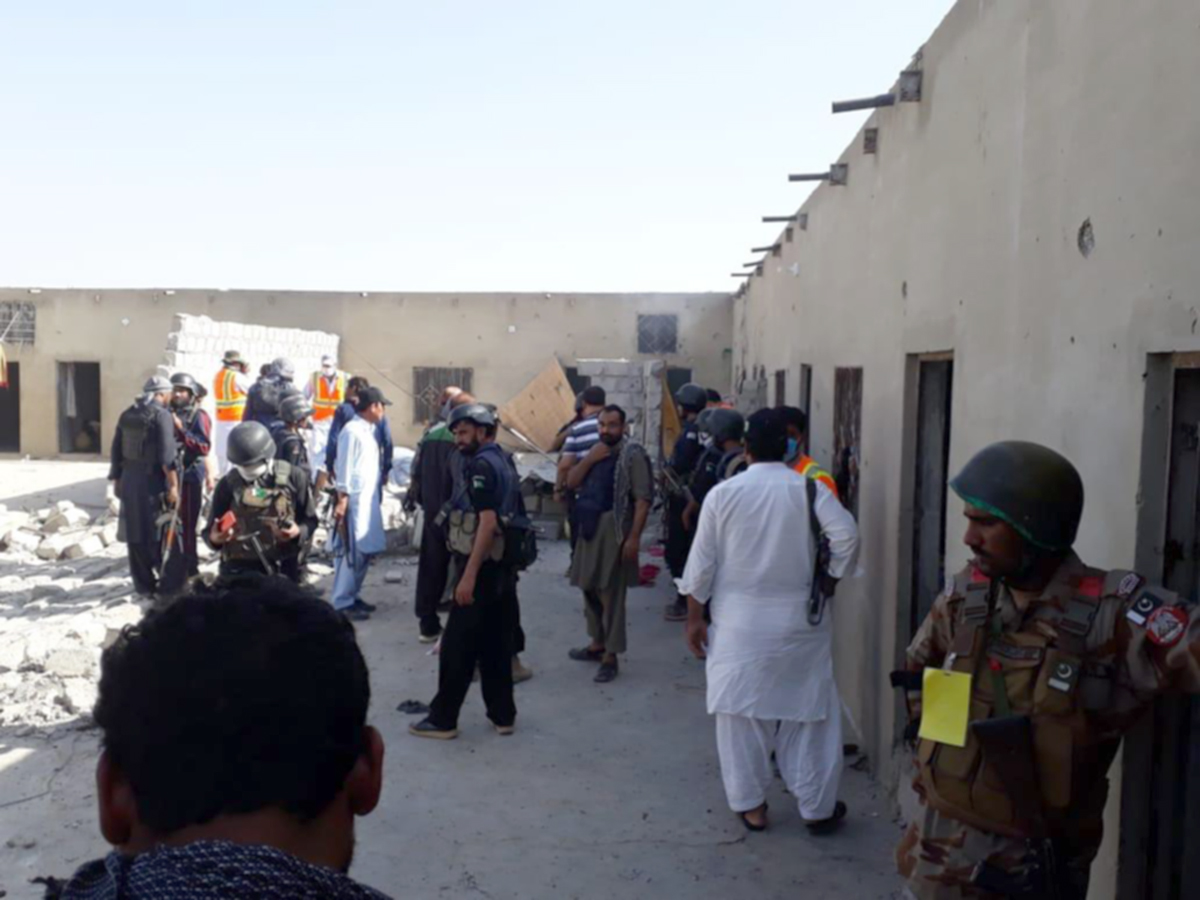By Roohan Ahmed
The Islamic State militant group has named a former Karachi police constable Daud Mehsud the leader of its newly created Wilayah Pakistan, after separating Pakistan from its Khorasan province, two counter-terrorism officials have confirmed to newsmen.
Mehsud was a munshi or constable at Karachi’s Quaidabad police station, one of them said, requesting anonymity because he is not authorized to speak to reporters. “Previously, he was based in Afghanistan,” he added. It is believed that he has moved to Balochistan after Daesh formed its Wilayah Pakistan in May 2019.
The official said that there is no direct link between Daesh’s Pakistan group and the group’s central leadership in Iraq and Syria. According to him, the decisions are made in Syria or Iraq and conveyed to Pakistan through Khorasan (Afghanistan).
Mehsud has a history. He started out with the proscribed Tehreek-e-Taliban Pakistan group led by the group’s slain leader Hakimullah Mehsud and rose in the ranks to its Karachi chief under Mullah Fazlullah. He had to leave Pakistan after law-enforcement agencies geared up an operation against militant groups.
In 2017, Mehsud left the TTP and pledged allegiance to the then Daesh’s Khorasan group. Aqeel Yousafzai, a Peshawar-based analyst who extensively covered militancy in Khyber Pakhtunkhwa, described Daud Mehsud as “energetic” and a “hardliner” and said that he was an influential figure in the TTP.
“TTP’s leadership is based in Afghanistan so there is a connection break between the group and its foot soldiers,” the analyst said. “The hardcore commanders of his former group may decide to join Daesh after seeing his face.”Targeting Balochistan
DIG Aitzaz Goraya, an official of the Balochistan counter-terrorism department, explained that there is no foreign terrorist working under the flag of Daesh. However, local terrorist groups Lashkar-e-Jhangvi and Jaish-ul-Islam had pledged their allegiance to Daesh. “That’s how Daesh emerged in Balochistan,” he added.
Lashkar-e-Jhangvi, an offshoot of the proscribed Sipah-e-Sahaba, is a militant group which has been targeting Shia Muslims in Pakistan, including Hazaras in Balochistan. At least 509 Hazaras have been killed in attacks against the community between 2012 and 2017, according to a 2018 National Commission for Human Rights report.
In the last few years, Daesh has claimed responsibility for several attacks in Balochistan, including one on an election rally in Mastung that left at least 128 people dead. In April, over 20 people, including eight Hazaras, were killed in an attack in Quetta’s Hazarganji.
This attack too was claimed by the ISIS through its ‘Amaq news agency’. In recent months, security forces have killed over a dozen Daesh militants in and around Quetta, according to police officials. On September 4, at least six militants, including a female suicide bomber, were killed in an operation near Quetta’s eastern by-pass.
They were involved in several attacks, including the Hazarganji one. The black flags of the Islamic State and weapons were seized from the compound. The very next day, Daesh confirmed through Amaq that its fighters were involved in a gun battle with the Pakistani security forces in Quetta. A police officer was also killed in this exchange. In May, nine Daesh militants were killed in an operation near Quetta.
According to DIG Goraya, Mastung, Quetta, Kalat, Khuzdar and Lasbela were the most affected parts. These areas are used as a “transit, lodging and boarding point,” he added. “Some presence was also reported in Bolan and Dera Murad Jamali,” the CTD official said. Daesh has lost the areas it used to control under its ‘caliphate’ in Syria and Iraq.
But Goraya said that Daesh is “still effective and lethal” in Balochistan because the “LeJ brand” still supports the group. He said that the group’s influence is likely to increase after the creation of Wilayah Pakistan. Other security analysts have been watching these developments. “The group is a permanent threat to the people of the province,” a Balochistan-based analyst told SAMAA Digital. He confirmed that regional anti-Shia groups, including Jaish-ul-Adl, Jundullah and Jaish-ul Islam have transferred loyalties to Daesh.The motive
After losing its ‘caliphate’ in Syria and Iraq, Daesh wanted to be seen as growing rather than shrinking, Raffaello Pantucci, the director of International Security Studies at RUSI, told SAMAA Digital. “More provinces is evidence of growth and success,” Pantucci said. “An additional benefit of creating more of these more specific and local provinces is to attract more local interest.”
At various moments, they have considered moving key leaders to new provinces, but this is a dangerous exercise, and the model is rather to show they have lots of global presence, he said. “[B]ut the heart of the group will always remain in Syria and Iraqas long as the current leadership is in charge,” he explained.
According to Amarnath Amarasingam, an assistant professor at Queen’s University, who researches extremism, added that the creation of smaller ‘Wilayah’ or provinces indicates that the group is foreseeing a lot more operations in India and Pakistan. “I think the AfPak (Afghanistan-Pakistan) region in particular will be their focus until conditions are ripe in Syria or Iraq again,” he said.


